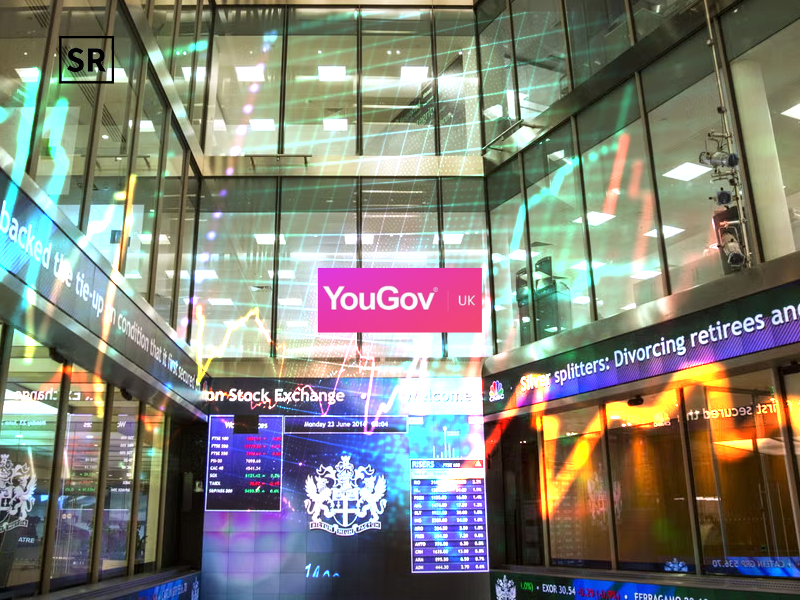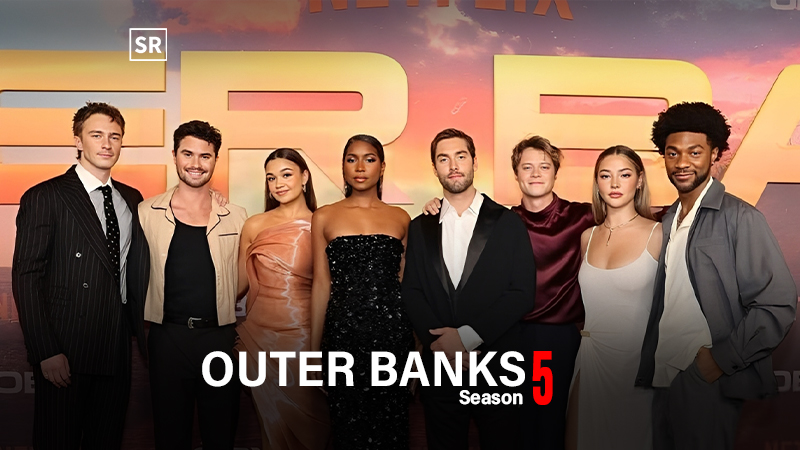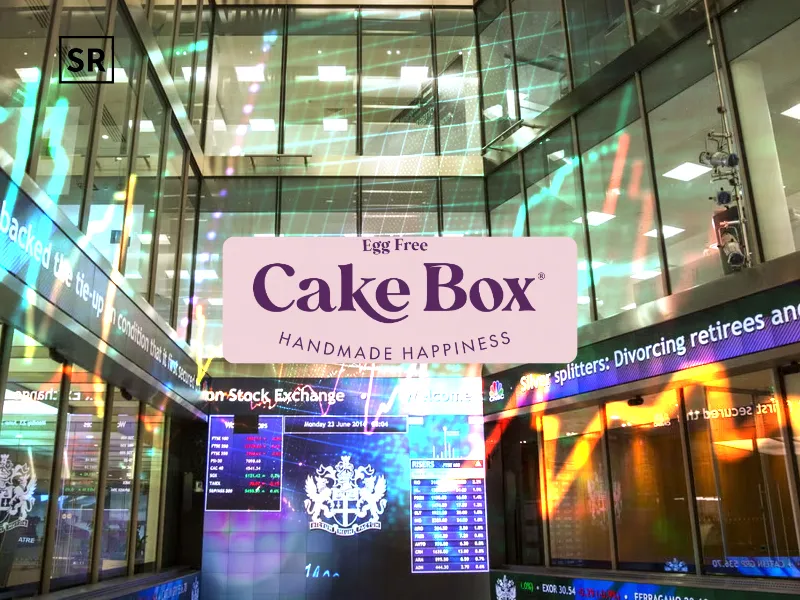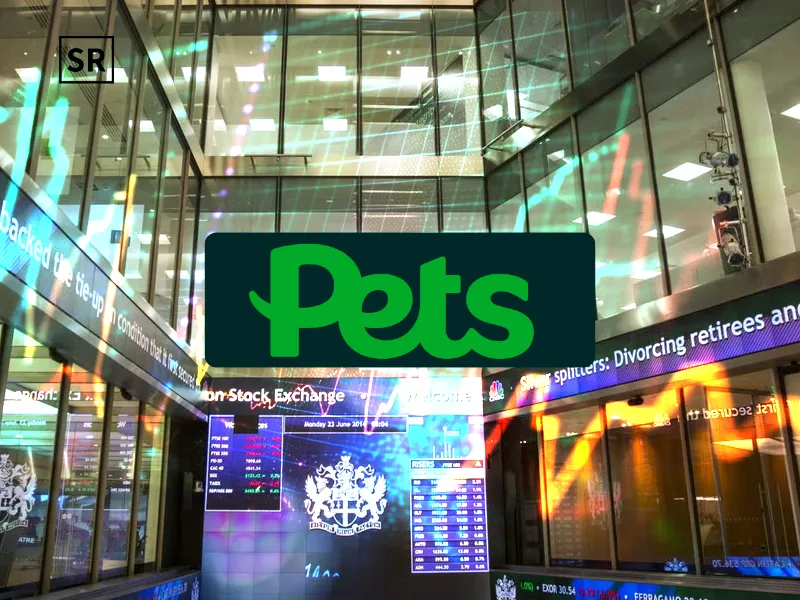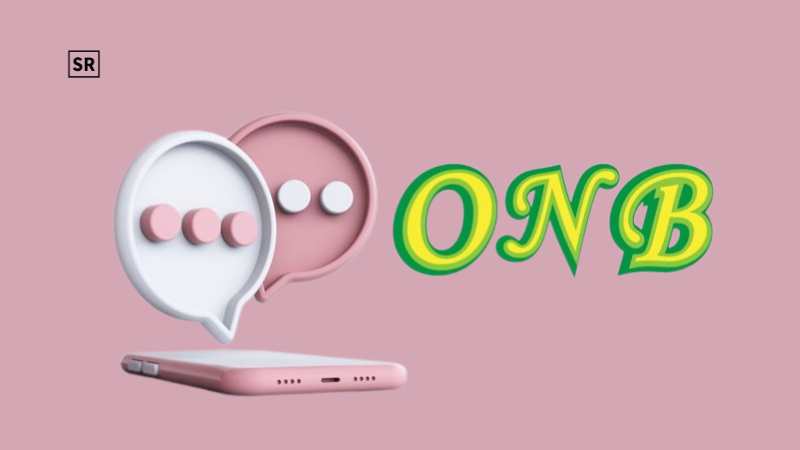
In texting and online chats, ONB usually means "Old News, Bro." It is a casual or sometimes sarcastic way to say that something is already known or no longer important. People use it in messages or social media when someone shares information that isn’t new anymore. ONB is mostly used informally between friends and depending on how it's said it can be playful or a bit rude.
However, the meaning of ONB can change depending on where and how it is used. For example, it can also mean "Oh No Baby," "On Bro," or "Outward Nose Breath" (a way of saying something is funny). Because it can mean different things ONB can be confusing. Still, it's a popular acronym that appears a lot in online conversations today.
What does ONB stand for in texting?
ONB is a short form that can mean different things depending on where and how it’s used. Unlike many internet slang terms that have just one meaning, ONB has several, and each one depends on who’s using it and the situation. Let’s look at the most common meanings so you can understand them better.
ONB = “Oh No Baby”
This version is often used on Snapchat and in texts to show shock, surprise, or disappointment. It’s like saying “Oh no!” when something unexpected or upsetting happens.
RECOMMENDED FOR YOU
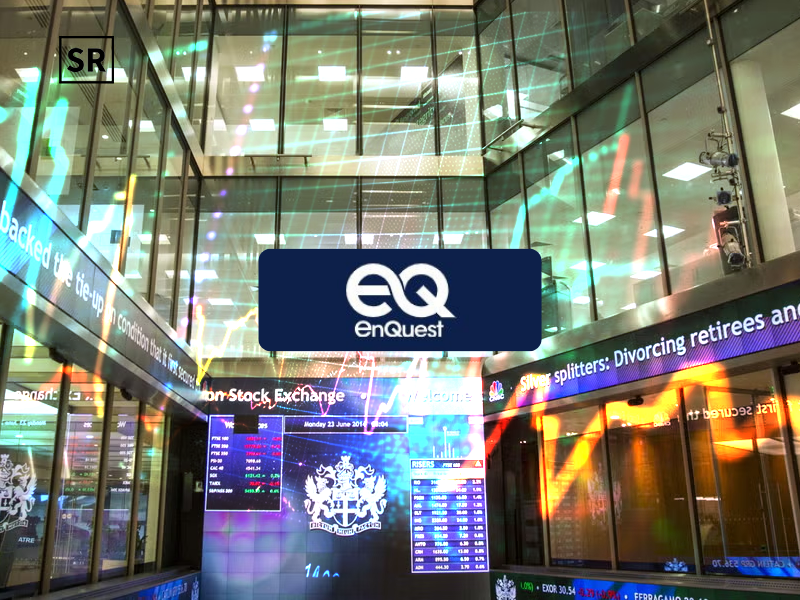
EnQuest Share Price Prediction (2025–2030): Expert Analysis & Predictions
Team SR
Jun 13, 2025
- Example: “ONB why did he say that?”
- It’s commonly used by girls to react quickly to drama or bad news.
- Think of it like a quick way to show a digital facepalm.
ONB = “On Bro”
This is one of the most popular meanings today, especially with Gen Z and Gen Alpha. People use “On Bro” to show they’re being serious, honest or making a promise.
Examples:
- “I didn’t do it, ONB.”
- “He really said that, ONB!”
- “I’ll be there at 8, ONB.”
It’s similar to saying “I swear” or “for real.” This version shows trust and truth in a casual way.
ONB = “Outward Nose Breath”
This meaning is big on TikTok. It describes that small laugh you do through your nose when something is kind of funny but not enough to LOL.
- Example: Someone sends a funny meme → You reply: “ONB.”
- It’s more real and honest than always saying “LOL” when you’re not actually laughing.
- Can be used seriously or sarcastically depending on the tone.
ONB = “Old News, Bro”
This version is used when someone shares information that’s already known. It is a way to say, “That’s not new” or “We already knew that.”
Example:
- Person 1: “Did you hear about Carol and Derek?”
- Person 2: “That’s ONB. She’s already moved on.”
It’s usually said in a teasing or playful way among friends not meant to be rude. It’s popular in group chats and comments when someone is late to share a trend or gossip.
How ONB is used across different platforms
Social media has its own way of using slang like ONB. This acronym shows up a lot but its meaning changes depending on where you are chatting. Let’s look at how people use ONB on different platforms.
ONB on Snapchat
On Snapchat, ONB usually means “On Bro.” Since Snapchat is all about casual chats between friends, people use ONB to show they’re being honest or serious.
- For example, if someone shares a cool story they might add “ONB” to prove it’s true.
- Or say, “ONB, I’ll be at your party tonight,” to promise they’ll really show up.
- Snapchat users like ONB because it helps them sound genuine.
ONB on Instagram
Instagram users also use ONB to mean “On Bro.” It’s a way to build trust in posts, comments, or direct messages.
- In captions: “If I get 1 million likes, ONB I’ll do a giveaway.”
- In comments: People reply “ONB” to agree or back up what’s said.
- In DMs: “ONB, your crush really creeps me out.”
Think of ONB on Instagram as a digital pinky promise it shows you really mean what you say.
ONB on TikTok
TikTok users give ONB a couple of fun meanings: “Outward Nose Breath” and “Oh No Baby.”
- Outward Nose Breath means something is a little funny enough to breathe out your nose but not laugh out loud. People might comment “ONB” on videos that make them smile quietly.
- Oh No Baby is used for surprise or shock, often with funny memes or videos. You might see “ONB!” with a laughing emoji on a shocking clip.
Both meanings fit TikTok’s playful and fun style.
ONB in Texting
In regular text messages ONB usually means “On Bro.” People use it like saying “I swear” or “for real” to make their point stronger.
Example texts:
- “I’m cleaning out my closet this weekend, ONB.”
- “I didn’t cheat on the test, ONB.”
- It is a short way to add honesty without explaining too much.
Examples of ONB Appears in Real Conversations
Here are some real conversation examples of ONB in point-paragraph format, showing its different meanings clearly :
ONB as “On Bro”
Someone might say, “I didn’t take your AirPods, ONB,” to prove they’re telling the truth. In another case, a friend could text, “ONB, I’ll be there by 8,” as a way to seriously commit to showing up on time.
ONB as “Oh No Baby”
Imagine a friend sends a snap about a messy breakup someone might reply, “ONB what even happened?” It’s a quick way to express surprise or sympathy without saying too much.
ONB as “Outward Nose Breath”
If a meme is only mildly funny, someone might comment, “This made me ONB ” on TikTok or Instagram, meaning it made them exhale through their nose but not laugh out loud.
ONB as “Old News, Bro”
In a group chat one person might say “Did you hear Anna and Mark broke up?” and another might reply, “That’s ONB. She is already dating someone else.” This shows the news is outdated usually in a playful way.
Why People Prefer ONB Over Other Slang
People use ONB instead of other slang because it's short, flexible and expressive, making it easy to fit into many casual conversations. Here are a few key reasons why ONB stands out:
It’s Short and Gets the Point Across
ONB is quick and easy to type. Just three letters can say a lot like “I swear” or “that made me laugh a little.” In fast-paced chats or apps with word limits (like Twitter/X or Snapchat) using ONB saves time and space.
It’s perfect for:
- Fast replies during chats
- Platforms with short character limits
- Quick reactions without typing a lot
It Helps Show Emotion
Texting can be confusing sometimes because it doesn’t always show how someone feels. ONB helps with that. For example, if someone says ONB as “Outward Nose Breath,” it shows something was kind of funny more honest than just saying “LOL” when you're not actually laughing.
It gives a better idea of how you feel without writing a long message. This makes conversations feel more real and personal.
It Keeps Things Casual
Using ONB makes your messages sound friendly and chill. It’s not formal it’s something you’d use with friends or people you’re close to. That relaxed tone helps build stronger, more natural connections.
For younger people like Gen Z, being real and relatable matters. Using slang like ONB shows you're not trying too hard and helps keep the conversation light and easy.
It Shows You’re Up-to-Date
Using ONB shows you’re in touch with what’s trending. It’s part of modern digital language, and using it makes you feel like you belong to a certain group or community especially among younger users.
People who understand and use slang like ONB often come across as more socially aware and relatable online. It’s a fun way to stay connected with others and keep your communication style current.
Tips for Using ONB Correctly
To use ONB the right way, you just need to understand a few simple rules. Knowing when and how to use it can help you express yourself better in chats, whether you’re trying to be honest, react to something surprising, or respond to a funny moment.
Understand the context:
Before using ONB, it’s important to pay attention to the tone of the conversation. ONB can mean different things depending on the situation. If someone shares something shocking it likely means “Oh No Baby.” When used to stress honesty or seriousness, it usually means “On Bro.” If it's a response to something mildly funny, it could stand for “Outward Nose Breath.” And when reacting to outdated information, it often means “Old News Bro.” Always consider what’s happening in the conversation first and if you're unsure, it’s better to ask than guess.
Avoid using it in formal settings:
ONB is casual slang and should be kept out of professional environments. It’s not appropriate for emails, work chats, school assignments or formal writing. Using it in those spaces might make you seem unprofessional or unclear. A simple rule: if slang like “LOL” or “bruh” feels out of place ONB does too. Stick with plain and clear language in professional settings.
Use it with close friends or peers:
ONB works best with people who already know what it means. It helps create a relaxed and friendly vibe in conversations with those you’re comfortable with. Friends who are familiar with internet slang will understand and appreciate it most. In casual group chats or social media circles, ONB can build trust, show emotion or strengthen group identity.
Don’t overuse it:
Like any slang, ONB loses its effect if it’s used too often. Think of it like seasoning just a little makes a difference but too much can ruin the message. Use ONB where it fits naturally and adds meaning. Also, keep in mind that slang trends change quickly. What’s cool today might feel old tomorrow so use ONB when it feels right not just to sound trendy.
Conclusion
ONB is a versatile and popular slang term that adds personality and emotion to digital conversations. Whether it stands for “On Bro” to show honesty, “Oh No Baby” to express surprise, “Outward Nose Breath” for something mildly funny or “Old News Bro” to react to outdated info it all depends on context. ONB correctly can make your messages feel more real, relatable, and up-to-date with modern slang. Just remember to use it casually, avoid it in formal settings and make sure your audience understands it. When used right, ONB helps keep texting fun, expressive and connected to today’s digital culture.


 Follow us
Follow us Follow us
Follow us

